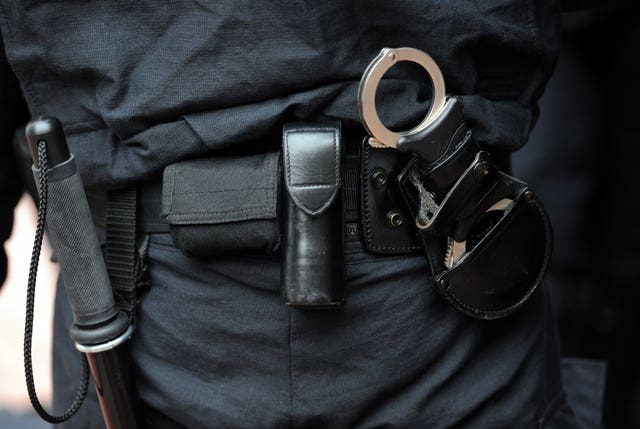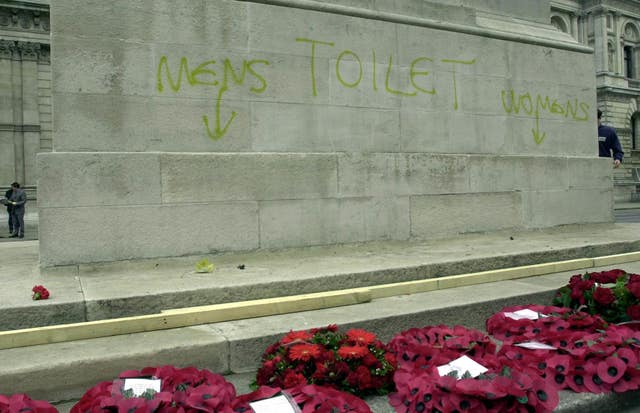The “Kill the Bill” protest in Bristol was organised against the Government’s Police, Crime, Sentencing and Courts Bill, which could see the police handed more powers to tackle demonstrations.
The wide-ranging proposals, as part of efforts to overhaul the justice system, cut offending and make streets safer, also include laws to reform sentencing, the courts and handling offenders.
If passed, some of the measures will be UK-wide while others may only apply in England and Wales.
– What are the key measures proposed in the Bill?
One of the key proposals is whole life orders for premeditated murder of a child, allowing judges to also hand out the maximum sentence to 18 to 20-year-olds in exceptional cases, like for acts of terrorism leading to mass loss of life.
There are also powers to halt the automatic early release of offenders who pose a danger to the public and end the automatic release halfway through a sentence of serious violent and sexual offenders.
Life sentences for killer drivers could be introduced while position-of-trust laws to make it illegal for sports coaches and religious leaders to engage in sexual activity with 16 and 17-year-olds in their care could be expanded.

– Will the police have more power under the Bill?
Potentially. The legislation looks to toughen up powers the police have to tackle “non-violent” protests which are significantly disruptive to the public or on access to Parliament.
The proposed law includes an offence of “intentionally or recklessly causing public nuisance”.
According to the Bill, someone commits this crime if they cause “serious harm to the public”, which can include “serious annoyance, serious inconvenience or serious loss of amenity”. Those convicted could face a fine or jail.
The Home Office said this replaces an existing common law offence of public nuisance as it applies in England and Wales with a statutory offence of intentionally or recklessly causing public nuisance.
The plans could also see police given powers to impose more conditions on static protests, like time and noise limits, and extend the rules to one-person demonstrations.
Meanwhile, the Government is also seeking to increase the maximum penalty for criminal damage to a memorial from three months to 10 years, under the Bill.
The laws could also see police have more powers to crack down on unauthorised encampments which interfere with the ability to use the land.

Officers could also be allowed to stop and search people more if plans for serious violence reduction orders go ahead.
This would make it easier to carry out checks on those who have previously been convicted of carrying a knife.
– What about other measures for victims?
The Bill seeks to reverse bail reforms which led to suspects accused of serious and violent crimes being released without restrictions, and instead imposing conditions if they could pose a risk to victims, witnesses or the public.
Laws could also be introduced to allow police to obtain search warrants to help find human remains where it is not possible to bring about a prosecution, such as where a suspect has died, is unfit to plead or has already been convicted of the offence in the absence of a body.
– Are there plans to provide more protection for police officers?
Yes, Home Secretary Priti Patel wants to double the maximum sentence for assaulting an emergency worker to two years and enshrine a Police Covenant in law to protect serving and retired officers and their families.

– What are the other measures proposed in the Bill?
The amount of time offenders can be subject to curfews could be doubled to two years.
A legal duty could be placed on councils, police, criminal justice bodies, health and fire services to tackle serious violence and share intelligence and data.
Homicide reviews could be carried out for deaths of adults involving offensive weapons, to try to better understand and prevent violent crime.
Profoundly deaf people could be allowed to sit on juries for the first time, by allowing a British sign language interpreter into a jury deliberation room.




Comments: Our rules
We want our comments to be a lively and valuable part of our community - a place where readers can debate and engage with the most important local issues. The ability to comment on our stories is a privilege, not a right, however, and that privilege may be withdrawn if it is abused or misused.
Please report any comments that break our rules.
Read the rules hereComments are closed on this article